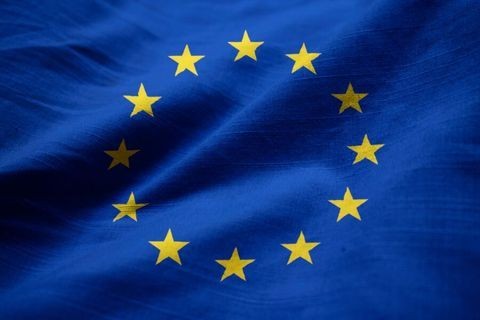FTC v. Facebook: Court Denies Facebook’s Motion to Dismiss, Allowing Discovery to Proceed in FTC’s Monopolization Case
Client Alert | 5 min read | 01.18.22
On January 11, 2022, District Judge James Boasberg (D.D.C) largely denied Facebook’smotion to dismiss an amended complaint filed by the FTC. The FTC sued Facebook in December 2020 under Section 13(b) of the FTC Act, which authorizes the FTC to seek an injunction against an entity that “is violating” or “is about to violate” any provision of law enforced by the Federal Trade Commission. The FTC alleges that Facebook has acted unlawfully to maintain its monopoly in an alleged Personal Social Networking market in violation of Section 2 of the Sherman Act, which is alleged to constitute an unfair method of competition under Section 5 of the FTC Act. In June 2021, Judge Boasberg granted Facebook’s initial motion to dismiss, but allowed the FTC to file an amended complaint, and the FTC did so in August 2021.
In his June order dismissing the FTC’s initial complaint, Judge Boasberg held that the Personal Social Networking market was plausible but agreed with Facebook that the FTC’s allegation that Facebook held more than a 60% share of that market was unsupported. Last week, Judge Boasberg held that the amended complaint cured this issue. Judge Boasberg focused on the FTC’s added allegations regarding Facebook’s share of daily and monthly average users, as well as its share of users’ average time on each site. Potential investigation and litigation targets should take note that here, as in other antitrust opinions, the court’s conclusion was buttressed by internal and industry documents that used these metrics. The Court also quoted statements made by Mark Zuckerberg and other Facebook executives in its analyses of both market power and anticompetitive effects.
In his June order, Judge Boasberg held that to establish monopoly power for purposes of Section 2, a plaintiff relying on a high market share must allege that the defendant’s market position is protected by high barriers to entry. In last week’s opinion, Judge Boasberg held that the FTC’s allegations of direct network effects – i.e., Facebook users want to use the Personal Social Network that other people are using – and high switching costs are adequate to meet this pleading standard.
But monopolies are not illegal. The offense of monopolization also requires anticompetitive conduct to maintain the monopoly, and the FTC’s amended complaint alleges such conduct in two counts. First, the FTC challenges Facebook’s acquisitions, particularly its 2012 acquisition of Instagram and its 2014 acquisition of WhatsApp, both of which were subject to pre-merger notification and review under the Hart-Scott-Rodino Act. In June, the Court rejected Facebook’s argument that because the FTC decided not to challenge the acquisitions during the pre-merger review, it is precluded from doing so now. It reasoned that the post-merger effects of those acquisitions can be assessed and remain subject to challenge by the FTC, although the court limited the reach of this holding to the federal government. Judge Boasberg held in a separate decision that laches barred a similar claim brought by most of the states against Facebook, which the states have appealed. Although barring private lawsuits against long-since consummated acquisitions should give a significant measure of solace to many acquirers, Judge Boasberg’s holding may encourage federal antitrust enforcers to take fresh looks at old acquisitions.
Second, the FTC alleges that Facebook withheld access to its application programming interfaces from competitors. In June, Judge Boasberg held that it is not unlawful for a monopolist to maintain a policy of refusing to deal with its competitors, unless the FTC could bring an Aspen Skiing style claim against Facebook for revoking access by rivals with whom it had historically dealt. But in his June opinion, Judge Boasberg held that the revocations the FTC identified in its complaint were too old to support the FTC’s allegation that Facebook was currently violating the FTC Act, as is required to trigger the FTC’s authority under Section 13(b). In its amended complaint, the FTC did not identify any examples of a revocation after 2016, and in last week’s opinion, Judge Boasberg deemed the 2016 revocation too old as well. This means that discovery cannot proceed on this theory of exclusionary harm. Some commentators may view this holding as impeding private plaintiffs and the government from challenging actions by monopolists that have been discontinued, potentially incentivizing conduct that will be capable of repetition yet evading review, as with standards for mootness. But public scrutiny may dissuade Facebook and others from repeating such conduct going forward.
Perhaps one of the most important aspects of the opinion is Judge Boasberg’s analysis of the FTC’s allegations of anticompetitive effects. Critics of the current state of antitrust law have argued that it has been unduly confined to price effects. Judge Boasberg’s opinion, however, suggests that the criticism has been overstated. Although the FTC could not allege harm in the “archetypal form of increased consumer prices,” Judge Boasberg recognized that the FTC identified “a host of other harms” such as “a decrease in service quality, lack of innovation, decreased privacy and data protection, excessive advertisements and decreased choice and control with regard to ads, and a general lack of consumer choice in the market for such services.” Although subject to proof as the case now progresses, the court’s acknowledgement that these are cognizable albeit non-price competitive harms may prove useful to other plaintiffs alleging harm from services provided at zero financial cost to consumers, as well as to critics of major antitrust reforms.
Finally, Judge Boasberg addressed and rejected Facebook’s argument that FTC Chair Lina Khan, who provided one of the three votes in support of filing the amended complaint, should have been recused. Chair Khan rose to prominence over the past several years by promoting an aggressive view of antitrust enforcement, particularly against technology companies, and served as counsel to the House Judiciary Committee’s Subcommittee on Antitrust, Commercial, and Administrative Law’s investigation that claimed that various tech companies, including Facebook, possess and have abused their market power. Judge Boasberg analogized Chair Khan’s role in voting out the amended complaint to that of a prosecutor, who need not be entirely disinterested in a case’s outcome. Recusal will only be warranted for prosecutors, he concluded, if there is evidence of personal animus or financial interest. However, Judge Boasberg recognized that the calculus may be different for a commissioner serving an adjudicatory function, including potentially rulemaking. This argument is sure to resurface if Chair Khan is called upon to review cases brought via an administrative complaint and may nudge the FTC away from the administrative complaint route in future cases involving subjects of her prior work and commentary.
Contacts
Insights
Client Alert | 14 min read | 12.22.25
European Commission Proposes Biotech Act to Boost Health Biotechnology in the EU
On December 16, 2025, the European Commission published its proposal for a regulation establishing a European Biotech Act to strengthen the EU's biotechnology and biomanufacturing sectors with a primary focus on health.
Client Alert | 2 min read | 12.19.25
Client Alert | 7 min read | 12.19.25
In Bid to Ban “Woke AI,” White House Imposes Transparency Requirements on Contractors
Client Alert | 5 min read | 12.19.25
Navigating California’s Evolving Microplastics Landscape in 2026





